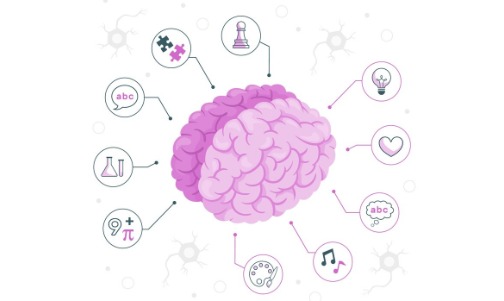Today, most of us are buried under too much at once. Between work, social commitments, and the black hole that is the internet, staying mentally sharp and productive has turned into a full-time job.
And while hustle culture will tell you that success simply comes from “working harder,” science disagrees. Your cognitive function is what plays a bigger role in productivity. And if your brain is foggy, no amount of to-do lists can save you.
So, instead of pushing harder, let’s explore how to boost brain function, memory, mental clarity, and get more done while avoiding burnout.
What Is Cognitive Function?
Cognitive function is your brain’s ability to process information, solve problems, learn new things, and stay focused. It’s made up of several areas, including:
- Working memory
- Executive function
- Attention span
- Processing speed
When these areas are working correctly, you feel mentally clear, focused, and capable. And if they’re not, that’s when you experience brain fog.
What Affects Brain Function?
You would think that a bad night’s sleep is the main culprit, but while sleep deprivation is a part of it, so are:
- Chronic stress and anxiety
- Lack of physical activity
- Poor nutrition
- Excessive screen time
- Dehydration
Over time, these factors can cause dips in memory, slower reaction times, trouble focusing, and mental fatigue – all of which reduce your productivity.
Move Your Body
You don’t have to run a marathon, but consistent exercise is one of the most effective ways to boost brain function.
You can try cardio as it increases:
- Blood flow to the brain
- BDNF (Brain-Derived Neurotrophic Factor), a protein that promotes cell growth
- Mood
- Sleep quality
Even going for a walk for a few minutes can help sharpen memory and improve cognitive flexibility.
Eat Healthy
The brain runs on glucose, but it also needs antioxidants, healthy fats, vitamins, and minerals.
You can try foods like:
- Fatty fish
- Blueberries
- Leafy greens
- Nuts and seeds
- Dark chocolate
Just make sure to avoid processed food as much as possible. Consuming large amounts of sugar can harm the brain in the long run.
Try Supplements
Sometimes, your brain needs a little extra backup. While supplements are not miracle pills or anything, some compounds have solid research behind them when it comes to improving focus, memory, and mental clarity.
One of them is Magtein supplements, with magnesium L-threonate that helps improve memory formation and learning ability. It can support neuroplasticity, which is the brain’s ability to adapt and reorganize.
Remember to always consult a healthcare provider before starting any new supplement, especially if you’re already taking medication.
Maintain Regular Sleep
If you want to retain information better, regulate your emotions, and solve problems faster, you need sleep. Regular and consistent sleep.
It helps you:
- Process and retain memories
- Flush out toxins
- Repair neural connections
Aim for at least 7 hours of sleep every day.
Practice Mindfulness
Meditation doesn’t require you to empty your brain. It helps you train your attention.
Studies have shown that mindfulness meditation:
- Increases gray matter in brain regions tied to learning and memory
- Improves attention span
- Lowers stress
Even spending five minutes a day on focused breathing can help you reset your brain, regain clarity, and stay more present.






